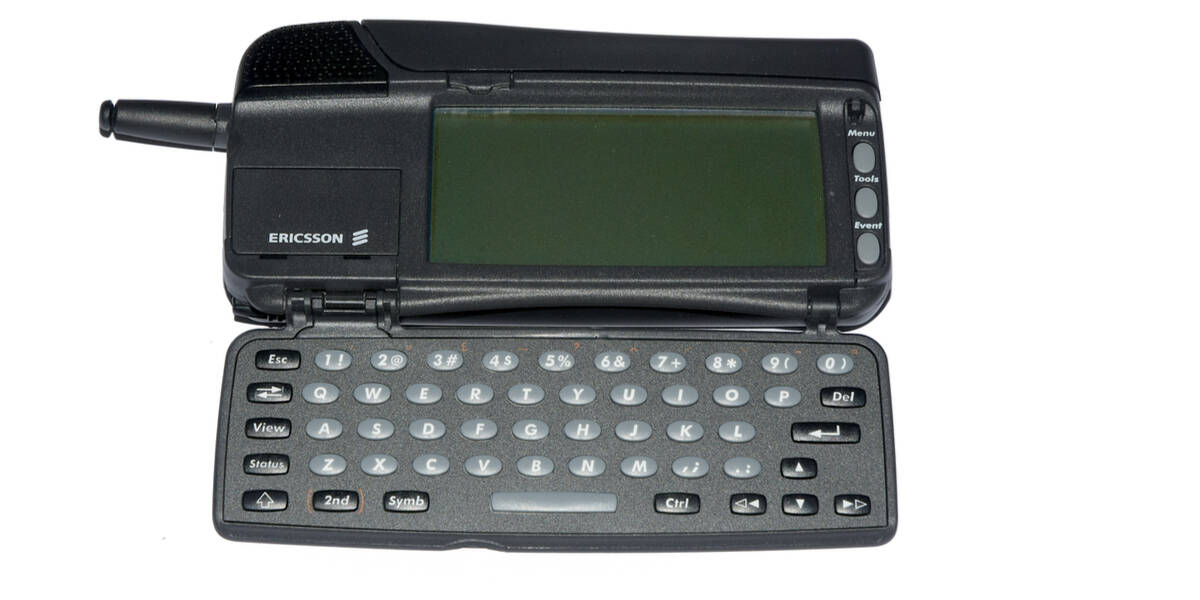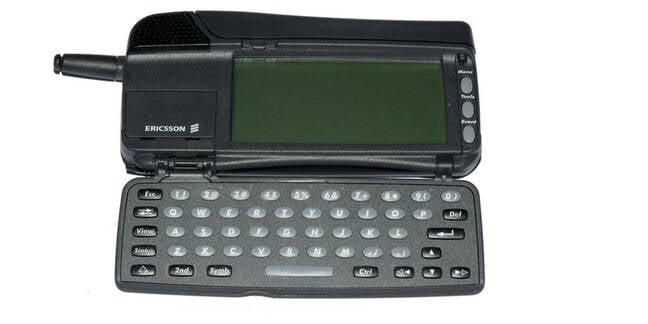Mobile Mobile Museum Looks To Chart The History Of Portable Phones

A very-literally-mobile museum boasting over 2,000 exhibits is to go online and on the streets this year to show off the evolution of the mobile phone from 1984 to the present day - and its founders are looking for donations to fill a few gaps in the collection.
"I've been collecting phones for more than 25 years. Over the last three decades the mobile phone has become part of the fabric of society and the design diversity, from early transportable phones to the latest smartphones with flexible displays, is something to behold," museum founder Ben Wood explained in a prepared statement.
"When the online museum launches later this year, we want it to be a rich learning resource and a way to inspire young people to go on to create incredible mobile innovations of their own in the future."
To support that opening, Wood and colleague Matt Chatterley have been touting for sponsorship - and have found their first big name in the form of UK mobile network Vodafone.
"We hope that by supporting Ben and Matt’s unique museum collection – the most comprehensive collection anywhere in the world – we’ll be able to help people reminisce about the devices they’ve had over the years," Voda consumer director Max Taylor claimed of the sponsorship, the financial terms of which have not been disclosed, "and get excited about what devices might be able to do for them in the future."
The plan is to have the collection available online from November this year, then to run pop-up physical museum tours in the near future - but the collection, while impressive at over 2,000 unique handsets, isn't yet complete.
Wood and Chatterley are looking for 11 holy-grail items to add - including the Nokia N950 sliding smartphone, the unusual rotary-style Samsung Serene, the vintage Ericsson GS88 "Penelope," the spinning Motorola Aura, and the just-about-luggable Mobira Senator from 1981, the predecessor of 1984's Mobira Talkman.
"The term 'personal computer,' I think, became far more personal than anybody ever really thought it would, in terms of that nostalgic feel for them," Jason Fitzpatrick, founder of the Centre for Computing History in Cambridge, told The Register of the museum's focus.
"A PC is something that sit on your desk and you build a relationship with because you're putting your thesis into while you're at university, or you're developing games for it, or you're writing software - you're doing whatever it is, but you're putting yourself into it.
"Mobile phones, in some ways, could be even more [personal], because there is obviously a very close personal proximity to your phone, it's always in your pocket, you do live your life through it, you text everybody through it, you send messages, talk to people, go on the internet through it. In some ways, to some people, they could be even more personal than a computer might be, because let's face it in future generations computers will be the phones, you'll be putting your phone on the desk, it will link to your HDMI screen wirelessly or whatever and you add a keyboard and away you go.
"Future generations may well regard phones in the same way as somebody that's in their 40s, 50s right now would consider their computer."
"We've got mobile phones throughout the museum," Fitzpatrick added, "and it always does go down very well, it's very nostalgic - even the younger kids start to come here and go 'oh, that's the phone that I first had!'"
- What killed Motorola? Not Google! It was Moto's dire software
- Happy birthday to the Nokia 3310: 20 years ago, it seemed like almost everyone owned this legendary mobile
- The BlackBerry in your junk drawer is now a collectors' item: TCL says no more new keyboard-clad phones
"I think there is a massive educational benefit for a mobile phone focused museum," added Robert Dowell, an educator at the National Museum of Computing. "A lot of people will have a common frame of reference and there'll be a lot of nostalgia in there as a whole - 'this is the first mobile phone I had' - and they'll be able to compare with what they've got today which makes it exciting.
"We see here, people turn up and look at the WITCH [the Harwell Dekatron, a computer from 1951] and you tell them it does eight to 10 instructions a second, and yet my iPad Pro's got a CPU in it that does 11 trillion operations per second. So this concept of contrast and context, that's the important thing for all of these museums and I do think that it would be an exciting thing to see the change in such a small time because if you think about it it's only in the last 30 years that mobile phone technology has really become pervasive."
The online version of the Mobile Phone Museum is to go live at mobilephonemuseum.com on November 23 2021; dates and locations for the pop-up physical tour were not available at the time of writing. ®
From Chip War To Cloud War: The Next Frontier In Global Tech Competition
The global chip war, characterized by intense competition among nations and corporations for supremacy in semiconductor ... Read more
The High Stakes Of Tech Regulation: Security Risks And Market Dynamics
The influence of tech giants in the global economy continues to grow, raising crucial questions about how to balance sec... Read more
The Tyranny Of Instagram Interiors: Why It's Time To Break Free From Algorithm-Driven Aesthetics
Instagram has become a dominant force in shaping interior design trends, offering a seemingly endless stream of inspirat... Read more
The Data Crunch In AI: Strategies For Sustainability
Exploring solutions to the imminent exhaustion of internet data for AI training.As the artificial intelligence (AI) indu... Read more
Google Abandons Four-Year Effort To Remove Cookies From Chrome Browser
After four years of dedicated effort, Google has decided to abandon its plan to remove third-party cookies from its Chro... Read more
LinkedIn Embraces AI And Gamification To Drive User Engagement And Revenue
In an effort to tackle slowing revenue growth and enhance user engagement, LinkedIn is turning to artificial intelligenc... Read more


